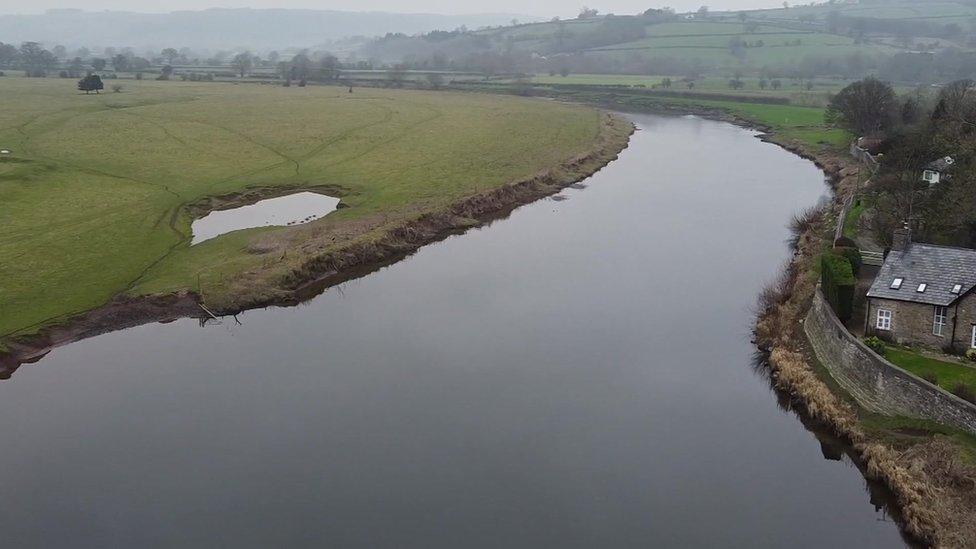Hereford sewage plant upgraded due to River Wye phosphorus concerns
- Published
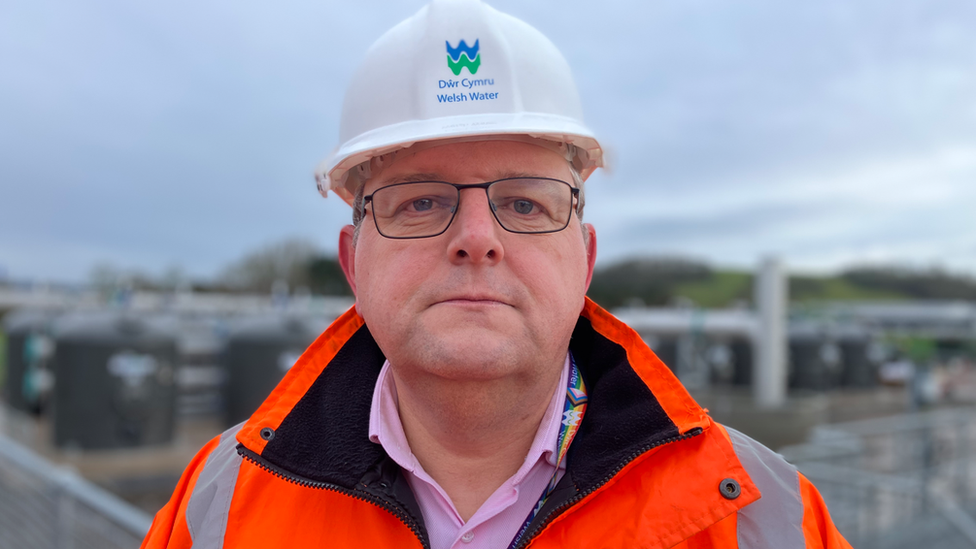
Phosphorous allowed algal blooms to occur, which stripped oxygen out of the river, Steve Wilson said
Welsh Water has upgraded one of its sewage works in order to improve the quality of the River Wye.
The sewage plant that deals with waste from Hereford has been fitted with new filtering technology to remove more phosphorus from the treated water before it is put back into the river.
Excess phosphorus in the Wye has led to it being classified as "unfavourable declining" by Natural England.
Steve Wilson from Welsh Water said it had been "quite a challenge".
He said it was difficult to build a large scheme on a live treatment works because "you can't ask the people of Hereford, you can't go to the toilet for a couple of weeks while we do this work."
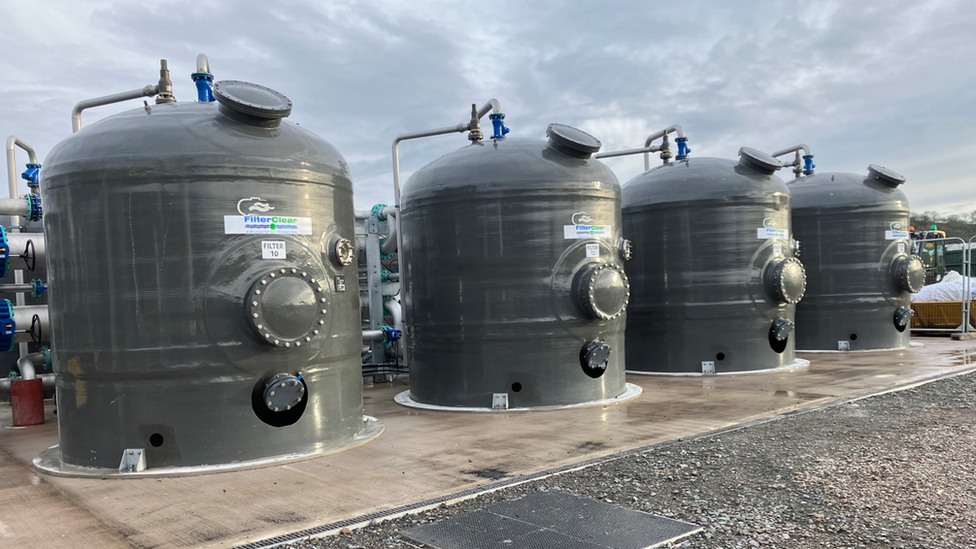
Welsh Water said it had been quite a challenge to upgrade facilities while the site continued to work
The project is one of two schemes in Hereford with a total cost of £20m.
He said the firm planned to add 14 new phosphorus removal plants on sewage works down the river.
"That will reduce our contribution to that to kind of the lowest level you can get a treatment works down to," he said.
"So that will leave still other sources of phosphorus.... but the problem we have with phosphorus is that there's just too much.
"That phosphourous is allowing algal blooms to occur, they're stripping oxygen out of the river and that's where I mean we see lots less fish and the river just does not look like it used to do," he added.
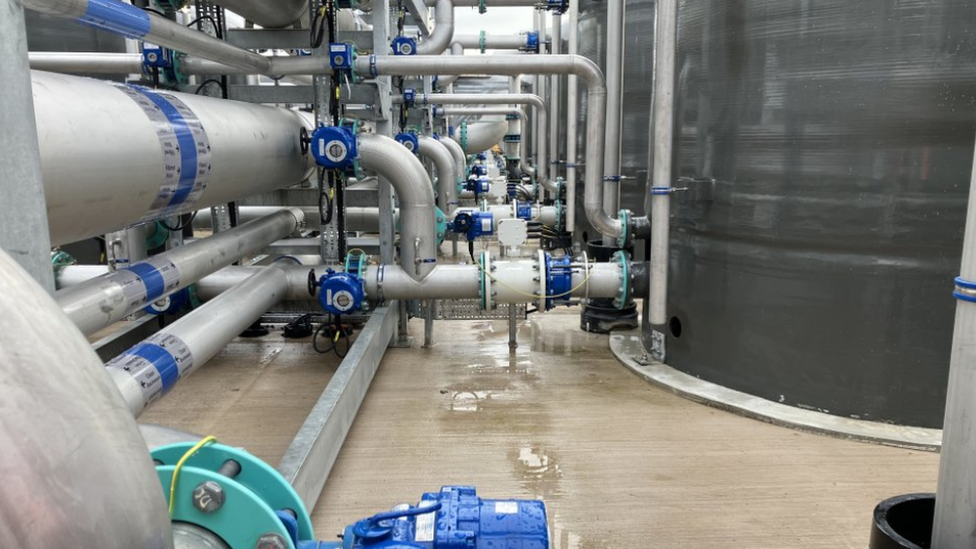
Welsh Water has spent £20m on two schemes in Hereford
Earlier this month, campaigners took the Environment Agency to court, accusing it of not stopping chicken manure polluting the river.
The charity River Action, which brought the case, said laws to keep waterways healthy have not been enforced.

Follow BBC West Midlands on Facebook, external, X, external and Instagram, external. Send your story ideas to: newsonline.westmidlands@bbc.co.uk, external
Related topics
- Published8 February 2024

- Published29 December 2023
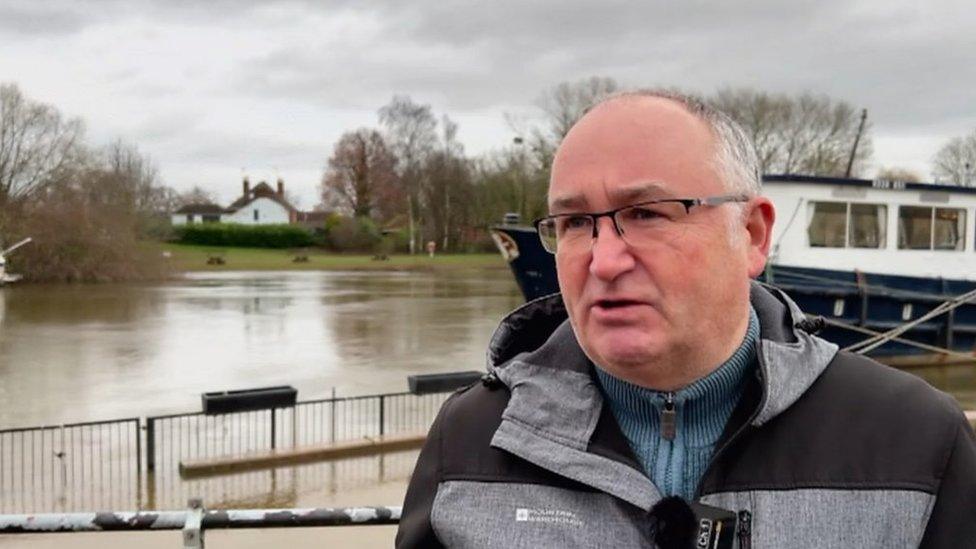
- Published20 October 2023
